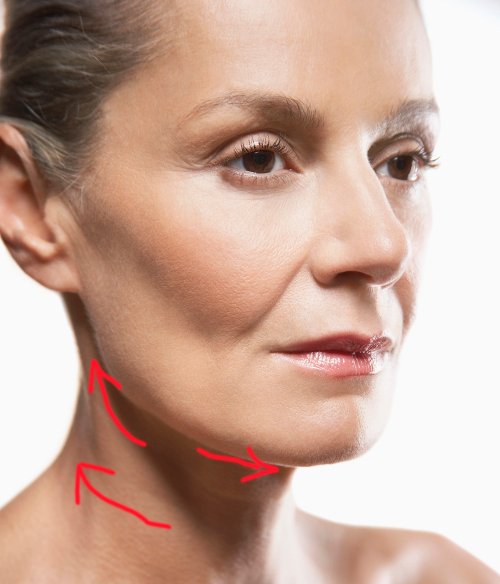A neck lift can dramatically improve the appearance of the neck and jawline, restoring youthful contours and improving self-confidence. However, not everyone is an ideal candidate for this procedure. Beyond aesthetic concerns, there are important medical factors that surgeons evaluate to ensure the safety and effectiveness of a neck lift. Understanding the role of BMI, skin quality, age, and underlying health conditions can help you determine if you’re a good candidate for surgery.
1. Body Mass Index (BMI): Why It Matters
Your BMI can significantly influence both the outcome and safety of a neck lift.
- Ideal Range: Patients with a BMI in the normal to slightly overweight range (generally under 30) tend to have better surgical results and fewer complications.
- Higher BMI Considerations: Excess body fat, especially in the submental (under-chin) area, can obscure the neck’s natural contours. While liposuction may be used in combination with a neck lift, high BMI can increase the risk of:
- Poor wound healing
- Infection
- Blood clots (especially in patients with obesity-related comorbidities)
- Weight Stability: Candidates should ideally be at a stable weight for at least 6 months before surgery. Significant future weight fluctuations can negatively impact surgical results.
2. Skin Laxity and Elasticity: A Key Predictor of Results
The quality of your skin determines how well it will conform to your new neck contours after surgery.
- Moderate to Severe Skin Laxity: A neck lift is especially effective for patients with significant sagging skin, jowls, or a “turkey neck” appearance.
- Poor Skin Elasticity: Patients with very thin, sun-damaged, or inelastic skin may have less predictable results, as their skin may not “redrape” smoothly.
- Non-Surgical Alternatives: Patients with mild laxity may benefit from non-invasive options such as ultrasound or radiofrequency tightening before considering surgery.
3. Age: It’s About Biology, Not Just Numbers
There is no strict age limit for a neck lift, but age-related physiological changes influence candidacy.
- Common Age Range: Most neck lift patients are between 40 and 70 years old.
- Younger Patients: Individuals in their 30s or early 40s may be candidates if they have hereditary fat deposits or early signs of aging.
- Older Adults (70+): Age alone does not disqualify a patient. However, comprehensive medical screening is essential to assess:
- Cardiovascular health
- Medication interactions
- Skin healing ability
- Anesthesia tolerance
4. Underlying Health Conditions: What Surgeons Look For
Surgical safety is a top priority. The presence of certain medical conditions may require additional evaluation or optimization before proceeding:
- Chronic Conditions That May Delay or Prohibit Surgery:
- Uncontrolled diabetes
- Hypertension (high blood pressure)
- Bleeding disorders
- Autoimmune diseases affecting skin or healing
- Smoking and Nicotine Use: Smoking compromises blood flow to the skin and dramatically increases the risk of poor healing, skin necrosis, and infection. Most surgeons require nicotine cessation for at least 4–6 weeks before and after surgery.
- Medications: Blood thinners, corticosteroids, and immunosuppressants may need to be paused or adjusted under medical supervision prior to surgery.
5. Emotional and Psychological Readiness
In addition to physical health, psychological readiness is key:
- Realistic Expectations: Good candidates understand the scope and limits of a neck lift and view the surgery as a way to enhance—not perfect—their appearance.
- Emotional Stability: Candidates should not be undergoing major emotional upheaval or have untreated mental health conditions that could affect recovery or satisfaction with results.
6. Consultation and Evaluation
A consultation with a board-certified facial plastic or cosmetic surgeon is essential. During this visit, the surgeon will assess:
- Skin quality and laxity
- Fat distribution
- Neck muscle tone (particularly platysma integrity)
- Medical history, medications, and lifestyle habits
- Your aesthetic goals and whether they align with what surgery can achieve
Final Thoughts
A neck lift can be life-changing when performed on the right candidate. While cosmetic goals are important, medical considerations play a crucial role in determining candidacy and ensuring a safe, smooth recovery. If you’re considering a neck lift, speak with a qualified surgeon who can guide you through a thorough assessment process—and help you understand whether surgery is the best path forward for your unique anatomy and health profile.




